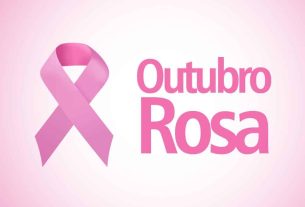The mother’s diet is a very important factor that changes the composition of breast milk. Therefore, during breastfeeding, it is recommended to take some care with your diet, especially to prevent certain substances from being passed on to the baby through the milk or altering the taste of the milk, making the breastfeeding process more difficult.
Some examples of foods that should be avoided are foods with a very intense flavor, such as garlic or asparagus, as well as foods that contain caffeine, such as chocolate, coffee or black tea. Furthermore, the consumption of teas must also be done with caution, as several plants can cause side effects on the mother and baby. Check out which teas are safe during breastfeeding and which ones you should avoid.
Some studies also indicate that the appearance of colic in babies can sometimes be related to the mother’s diet, especially due to the consumption of foods such as milk and dairy products, peanuts and shrimp, which can produce substances that are released into breast milk and They end up irritating the baby’s intestines, causing colic. Understand what the mother’s diet should be like to avoid colic in the baby.

What to avoid
Foods that should be avoided during breastfeeding are:
1. Alcohol
Alcohol passes quickly into breast milk, so that after 30 to 60 minutes, the milk has the same amount of alcohol as the body.
The presence of alcohol in breast milk can affect the baby’s nervous system, causing drowsiness and irritability, compromising their neurological and psychomotor development and even causing delay or difficulty in learning to speak and walk. Furthermore, the baby’s body does not eliminate alcohol as easily from the body as it does in adults, which can cause liver poisoning.
Alcoholic beverages can also decrease breast milk production and reduce the absorption of nutrients in the mother’s intestine that are necessary for the baby’s growth and development. Therefore, you should avoid consuming alcohol as much as possible while breastfeeding.
If the woman wishes to drink alcohol, it is recommended to express the milk beforehand and store it to give to the baby. However, if you do not do this, and drink small amounts of alcohol, such as 1 glass of beer or 1 glass of wine, for example, you should wait around 2 to 3 hours to breastfeed again.
2. Caffeine
Foods rich in caffeine, such as coffee, cola, energy drinks, green tea, mate tea and black tea, should be avoided or consumed in small quantities during breastfeeding, because babies cannot digest caffeine as well as adults. and excess caffeine in the baby’s body can cause difficulty sleeping and irritation.
When a woman ingests large amounts of caffeine, which corresponds to more than 2 cups of coffee per day, the iron levels in the milk can decrease and, thus, reduce the baby’s hemoglobin levels, which can cause anemia.
The recommendation is to drink a maximum of two cups of coffee per day, which is equivalent to 200 mg of caffeine, or you can also opt for decaffeinated coffee.
3. Chocolate
Chocolate is rich in theobromine, which has an effect similar to that of caffeine and some studies show that 113 g of chocolate has approximately 240 mg of theobromine and can be detected in breast milk 2 and a half hours after ingestion, which can cause irritation in the baby and difficulty sleeping.
Therefore, you should avoid eating large amounts of chocolate or eating it every day. However, you can consume a 28 g square of chocolate, which corresponds to approximately 6 mg of theobromine, and will not cause any problems in the baby.
4. Foods with an intense flavor
Foods with an intense flavor, such as garlic, asparagus or onion, or stronger condiments can cause changes in the taste and smell of breast milk, especially when consumed daily or in large quantities. This can cause the baby to reject breast milk, making the breastfeeding process difficult.
5. Foods high in sugar
Processed foods rich in sugar have few nutrients, such as fiber, vitamins and minerals, which can interfere with the production and quality of breast milk. Therefore, it is recommended to limit your intake as much as possible and give preference to fresh and natural foods, following a balanced diet that provides all the nutrients necessary for women’s health and the production of quality milk for the baby.
These foods include candied fruits, crackers, cookies and soft drinks, for example.
6. Foods rich in fat
Industrialized foods rich in fat, especially trans fat, could modify the fat composition of breast milk, which could have negative effects on the baby’s development, however more scientific studies are needed to confirm this relationship.
Trans fats can be found in foods such as refined soybean oil, margarine, snacks, sausages and sausages in general, microwave popcorn, pizzas, hamburgers and frozen lasagnas, for example.
7. Raw foods
Raw foods such as raw fish used in Japanese cuisine, oysters or unpasteurized milk, for example, are a potential source of food poisoning, which can cause a gastrointestinal infection for women with symptoms of diarrhea or vomiting, for example.
Although it does not cause any problems to the baby, food poisoning can cause dehydration in women, damaging milk production. Therefore, you should avoid raw foods or only consume them in trusted restaurants.
8. Some types of tea
Some types of tea can affect milk production or cause side effects in the baby, as is the case with lemon balm, oregano, parsley, peppermint, ginseng, kava-kava or star anise, for example. Therefore, they should be avoided whenever possible or consumed only under the guidance of a doctor.
Check out a list of teas that should be avoided when breastfeeding and others that are considered safe.
9. Foods that cause allergies
Some women may have allergies to certain foods and the baby may also develop allergies to the foods the mother eats while breastfeeding.
It is important that women are especially careful when consuming any of the following foods:
- Milk and derivatives;
- Military;
- Wheat flour;
- Eggs;
- Dried fruits, peanuts and chestnuts;
- Corn and corn syrup, the latter being widely found as an ingredient in industrialized products and can be identified on the label.
These foods tend to cause more allergies and can cause symptoms in the baby such as skin redness, itching, eczema, constipation or diarrhea, so it is important to observe what was consumed 6 to 8 hours before breastfeeding the baby and the presence of symptoms.
If you suspect that any of these foods are causing an allergy, you should eliminate it from the diet and take the baby to the pediatrician for evaluation, as there are several reasons that can cause an allergy to the baby’s skin in addition to food.
10. Aspartame
Aspartame is an artificial sweetener that, when consumed, is quickly broken down in the woman’s body, forming phenylalanine, a type of amino acid, which can pass into breast milk, and therefore, its consumption should be avoided, especially in cases where the baby has a disease called phenylketonuria, which can be detected shortly after birth through the heel prick test. Find out what phenylketonuria is and how it is treated.
The best way to replace sugar is to use a natural sweetener from a plant called stevia, which is allowed to be consumed at all stages of life.
What to eat
To obtain all the nutrients that the body needs during breastfeeding, it is important to eat a balanced diet that contains proteins such as lean meat, skinless chicken, fish, seeds and legumes, carbohydrates such as whole grain bread, rice and boiled potatoes, and good fats such as extra virgin olive oil.
See all the foods that can be consumed while breastfeeding, with a suggested menu.

Sign up for our newsletter and stay up to date with exclusive news
that can transform your routine!
Warning: Undefined array key "title" in /home/storelat/public_html/wp-content/plugins/link-whisper-premium/templates/frontend/related-posts.php on line 12
Warning: Undefined array key "title_tag" in /home/storelat/public_html/wp-content/plugins/link-whisper-premium/templates/frontend/related-posts.php on line 13



